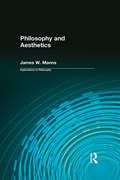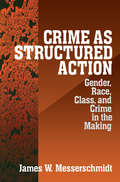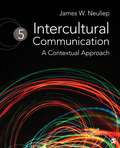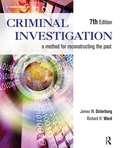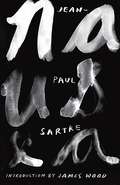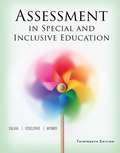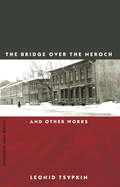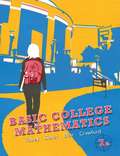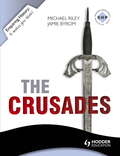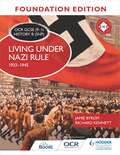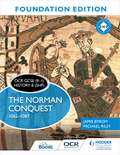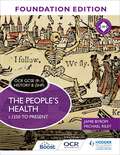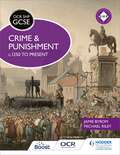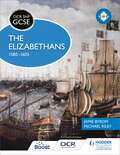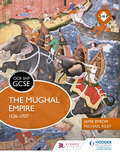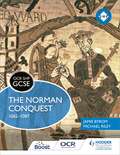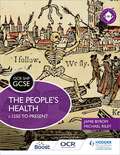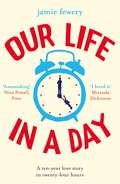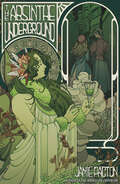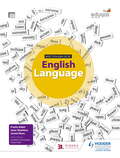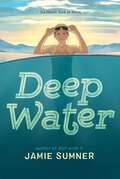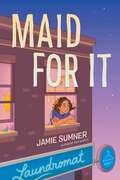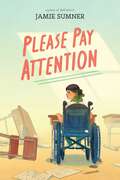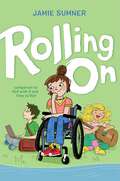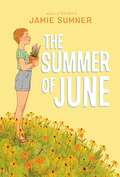- Table View
- List View
Philosophy and Aesthetics: Aesthetics And Metaphysics (Brill's Studies In Intellectual History #Vol. 45)
by James W. MannsJames Manns presents a readable and entertaining examination of the most serious questions posed by the arts and our relation to them. In a clear and engaging fashion, he explores the central issues in aesthetics: aesthetic judgment, the nature and role of criticism, the elusiveness of the concept of art, and communication through art, and he critically (but sympathetically) considers that principal theories of art that focus on expression, form, and representation. Through the use of extensive, entertaining, and current examples (including film), Manns conveys the solid basics relating to the history and development of aesthetic theories, tries out these various theories against the art of the last half century, then outlines his own view revolving around the artist's intention and the act of communication.
Crime as Structured Action: Gender, Race, Class, and Crime in the Making
by James W. MesserschmidtThe author of this volume skillfully demonstrates that a vital component to understanding crime is to be able to view it as more than a single activity. James W. Messerschmidt argues that crime operates subtly through a complex series of gender, race and class practices and these interwoven elements must be seen as part of all social existence, not viewed independently.
Intercultural Communication: A Contextual Approach (5th Edition)
by James W. NeuliepBased on the contextual model of intercultural communication, this text for a first undergraduate course features examples from an amazing variety of cultures, including Hmong, Amish, Navajo, and Arab American, as well as Latino, African American, and Japanese. The text introduces the need for intercultural communication, then covers cultural, micro-cultural, environmental, perceptual, and socio-relational contexts. There is also material on verbal and nonverbal codes, developing intercultural relationships, intercultural conflict, and intercultural communication in organizations. Learning features include discussion questions, self-assessments to assess student attitudes, and boxes offering student voices across cultures (new to this edition). This fifth edition offers several other new features: ethics questions, discussion of lesbian and gay culture, and a focus on the role of modern communication technology. Neuliep is affiliated with St. Norbert College. Annotation ©2012 Book News, Inc. , Portland, OR (booknews. com)
Criminal Investigation: A Method For Reconstructing the Past (Seventh Edition)
by James W. Osterburg Richard H. WardThis text presents the fundamentals of criminal investigation and provides a sound method for reconstructing a past event (i. e. , a crime), based on three major sources of information -- people, records, and physical evidence. Its tried-and-true system for conducting an investigation is updated with the latest techniques available, teaching the reader new ways of obtaining information from people, including mining the social media outlets now used by a broad spectrum of the public; how to navigate the labyrinth of records and files currently available online; and fresh ways of gathering, identifying, and analyzing physical evidence.
Nausea: With Introduction (Penguin Modern Classics Series)
by Richard Howard Jean-Paul Sartre James WoodSartre's greatest novel -- and existentialism's key text -- now introduced by James Wood. Nausea is the story of Antoine Roquentin, a French writer who is horrified at his own existence. In impressionistic, diary form he ruthlessly catalogs his every feeling and sensation. His thoughts culminate in a pervasive, overpowering feeling of nausea which "spreads at the bottom of the viscous puddle, at the bottom of our time -- the time of purple suspenders and broken chair seats; it is made of wide, soft instants, spreading at the edge, like an oil stain." Winner of the 1964 Nobel Prize in Literature (though he declined to accept it), Jean-Paul Sartre -- philosopher, critic, novelist, and dramatist -- holds a position of singular eminence in the world of French letters. La Nausée, his first and best novel, is a landmark in Existential fiction and a key work of the twentieth century.
Assessment in Special and Inclusive Education
by John Salvia James Ysseldyke Sara BoltASSESSMENT IN SPECIAL AND INCLUSIVE EDUCATION offers you basic assessment information along with a handbook-style reference to comprehensive, frank reviews of the tests most commonly administered in K-12 schools. The thirteenth edition brings to the forefront the important topics of MTSS/RTI and ELL, while retaining key features that have made the text a classic. The authors include a focus on both classroom-based tests designed to inform instruction and intervention, as well as more formal standardized tests that are commonly used to determine eligibility for special education. Whether you are a novice or an expert, this text will equip you with the knowledge and tools to effectively and efficiently assess your students' skills and abilities. Featuring an emphasis on improved outcomes, it shows you how to go beyond efforts designed to make predictions about students' lives to efforts that can make a difference in the lives of the students you serve.
The Bridge Over the Neroch: And Other Works
by Jamey Gambrell Leonid TsypkinFrom the acclaimed author of Summer in Baden-Baden, a collection of short work finally in English. Leonid Tsypkin's novel Summer in Baden-Baden was hailed as an undiscovered classic of 20th-century Russian literature. The Washington Post claimed it "a chronicle of fevered genius," and The New York Review of Books described it as "gripping, mysterious and profoundly moving." In her introduction,Susan Sontag said: "If you want from one book an experience of the depth and authority of Russian literature, read this book." At long last, here are the remaining writings of Leonid Tsypkin: in the powerful novella Bridge Across the Neroch, the history of four generations of a Russian-Jewish family is seen through the lens of a doctor living in Moscow. In Norartakir, a husband and wife on vacation in Armenia bask in the view of Mt. Ararat and the ancient history of the land, until they are unceremoniously kicked out of their hotel and returned to Soviet reality. The remaining stories offer knowing windows into Soviet urban life. As the translator Jamey Gambrell says in her preface: "For Tsypkin's narrator, history is a tightrope to be walked every minute of every day, in both his internal and external world."
Basic College Mathematics
by Jeffrey Slater Jamie Blair Jennifer Crawford John TobeyThe Tobey/Slater/Blair/Crawford series builds essential skills one at a time by breaking the mathematics down into manageable pieces. This practical "building block" organization makes it easy for students to understand each topic and gain confidence as they move through each section. Students will find many opportunities to check and reinforce their understanding of concepts throughout the text. With this revision, the author team has added a new Math Coach feature that provides students with an office hour experience by helping them to avoid commonly made mistakes. With Tobey/Slater/Blair/Crawford, students have a tutor, a study companion, and now a coach, with them every step of the way.
Enquiring History: Conflict and Controversy, 1095-1291
by Michael Riley Jamie ByromThink more deeply and work more independently at A level History through a carefully thought-out enquiry approach from SHP. Enquiring History: It makes you think! The OFSTED report on school history suggests that the current generation of A Level students have been poorly served by exam-based textbooks which spoon-feed students while failing to enthuse them or develop deeper understandings of studying History The Schools History Project has risen to this challenge with a new series for the next generation. Enquiring History is SHP's fresh approach to Advanced Level History that aims: - To motivate and engage readers - To help readers think and gain independence as learners - To encourage enquiry, and deeper understanding of periods and the people of the past - To engage with current scholarship - To prepare A Level students for university Key features of each Student book - Clear compelling narrative - books are designed to be read cover to cover - Structured enquiries - that explore the core content and issues of each period - 'Insight' panels between enquiries provide context, overview, and extension - Full colour illustrations throughout The Crusades: Conflict and controversy 1095-1291 There has never been a more important time to study the Crusades. Religious conflict is a fact of life in the twenty-first century no less than it was in the medieval world. And yet the world of the Crusades is so different from ours that it takes a massive leap of imagination to make sense of these events. This book takes on that challenge: opening a window onto the 12th and 13th century worlds to understand what on earth was going on. It examines the Crusades themselves; the controversies surrounding them; and the past and current re-interpretations of the period. Web-based support includes - lesson planning tools and guidance for teachers available from the SHP website http://www.schoolshistoryproject.org.uk/Publishing/BooksSHP/BooksALvlEHS.html - eBooks for whole class teaching or individual student reading available from eBook retailers
OCR GCSE (9–1) History B (SHP) Foundation Edition: Living under Nazi Rule 1933–1945
by Jamie Byrom Richard KennettExam board: OCR (Specification B, SHP)Level: GCSE (9-1)Subject: HistoryFirst teaching: September 2016First exams: Summer 2018An OCR endorsed textbook.Help more students access the content for OCR GCSE History B (SHP) with this Foundation Edition, designed to work alongside the mainstream textbook for effective co-teaching in the same class.Covering The Making of America 1789-1900, this book:- Follows the same structure and page numbers as the mainstream textbook so that students of all abilities can explore the same enquiries- Simplifies and reduces the text on each page, using carefully-controlled vocabulary and clear explanations of key terms- Focuses on the key points that students need to understand and includes new content summaries at the end of each enquiry to reinforce learning- Offers full support for the student tasks, using a wide range of scaffolding to make the tasks accessible and achievable- Provides specific assessment guidance and develops the historical thinking skills required for success at GCSEReading level measured and verified by MetaMetrics using the Lexile Framework for Reading
OCR GCSE (9–1) History B (SHP) Foundation Edition: The Norman Conquest 1065–1087
by Michael Riley Jamie ByromExam board: OCR (Specification B, SHP)Level: GCSE (9-1)Subject: HistoryFirst teaching: September 2016First exams: Summer 2018An OCR endorsed textbook.Help more students access the content for OCR GCSE History B (SHP) with this Foundation Edition, designed to work alongside the mainstream textbook for effective co-teaching in the same class.Covering The Making of America 1789-1900, this book:- Follows the same structure and page numbers as the mainstream textbook so that students of all abilities can explore the same enquiries- Simplifies and reduces the text on each page, using carefully-controlled vocabulary and clear explanations of key terms- Focuses on the key points that students need to understand and includes new content summaries at the end of each enquiry to reinforce learning- Offers full support for the student tasks, using a wide range of scaffolding to make the tasks accessible and achievable- Provides specific assessment guidance and develops the historical thinking skills required for success at GCSEReading level measured and verified by MetaMetrics using the Lexile Framework for Reading
OCR GCSE (9–1) History B (SHP) Foundation Edition: The People's Health c.1250 to present
by Michael Riley Jamie ByromExam board: OCR (Specification B, SHP)Level: GCSE (9-1)Subject: HistoryFirst teaching: September 2016First exams: Summer 2018An OCR endorsed textbook.Help more students access the content for OCR GCSE History B (SHP) with this Foundation Edition, designed to work alongside the mainstream textbook for effective co-teaching in the same class.Covering The People's Health c.1250 to present, this book:- Follows the same structure and page numbers as the mainstream textbook so that students of all abilities can explore the same enquiries- Simplifies and reduces the text on each page, using carefully-controlled vocabulary and clear explanations of key terms- Focuses on the key points that students need to understand and includes new content summaries at the end of each enquiry to reinforce learning- Offers full support for the student tasks, using a wide range of scaffolding to make the tasks accessible and achievable- Provides specific assessment guidance and develops the historical thinking skills required for success at GCSE
OCR GCSE History SHP: Crime and Punishment c.1250 to present
by Michael Riley Jamie ByromLet SHP successfully steer you through the new specification with an exciting, enquiry-based series that invigorates teaching and learning; combining best practice principles and worthwhile tasks to develop students' high-level historical knowledge and skills.- Tackle unfamiliar topics from the broadened curriculum with confidence: the engaging, accessible text covers the content you need for teacher-led lessons and independent study- Ease the transition to GCSE: step-by-step enquiries inspired by best practice in KS3 help to simplify lesson planning and ensure continuous progression within and across units- Build the knowledge and understanding students need to succeed: the scaffolded three-part task structure enables students to record, reflect on and review their learning- Boost student performance across the board: suitably challenging tasks encourage high achievers to excel at GCSE while clear explanations make key concepts accessible to all- Rediscover your enthusiasm for source work: a range of purposeful, intriguing visual and written source material is embedded at the heart of each investigation to enhance understanding- Develop students' sense of period: the visually stimulating text design uses memorable case studies, diagrams, infographics and contemporary photos to bring fascinating events and people to life
OCR GCSE History SHP: The Elizabethans, 1580-1603
by Michael Riley Jamie ByromAn OCR endorsed textbookLet SHP successfully steer you through the new specification with an exciting, enquiry-based series that invigorates teaching and learning; combining best practice principles and worthwhile tasks to develop students' high-level historical knowledge and skills.- Tackle unfamiliar topics from the broadened curriculum with confidence: the engaging, accessible text covers the content you need for teacher-led lessons and independent study- Ease the transition to GCSE: step-by-step enquiries inspired by best practice in KS3 help to simplify lesson planning and ensure continuous progression within and across units- Build the knowledge and understanding students need to succeed: the scaffolded three-part task structure enables students to record, reflect on and review their learning- Boost student performance across the board: suitably challenging tasks encourage high achievers to excel at GCSE while clear explanations make key concepts accessible to all- Rediscover your enthusiasm for source work: a range of purposeful, intriguing visual and written source material is embedded at the heart of each investigation to enhance understanding- Develop students' sense of period: the visually stimulating text design uses memorable case studies, diagrams, infographics and contemporary photos to bring fascinating events and people to life
OCR GCSE History SHP: The Mughal Empire 1526-1707
by Michael Riley Jamie ByromLet SHP successfully steer you through the new specification with an exciting, enquiry-based series that invigorates teaching and learning; combining best practice principles and worthwhile tasks to develop students' high-level historical knowledge and skills.- Tackle unfamiliar topics from the broadened curriculum with confidence: the engaging, accessible text covers the content you need for teacher-led lessons and independent study- Ease the transition to GCSE: step-by-step enquiries inspired by best practice in KS3 help to simplify lesson planning and ensure continuous progression within and across units- Build the knowledge and understanding students need to succeed: the scaffolded three-part task structure enables students to record, reflect on and review their learning- Boost student performance across the board: suitably challenging tasks encourage high achievers to excel at GCSE while clear explanations make key concepts accessible to all- Rediscover your enthusiasm for source work: a range of purposeful, intriguing visual and written source material is embedded at the heart of each investigation to enhance understanding- Develop students' sense of period: the visually stimulating text design uses memorable case studies, diagrams, infographics and contemporary photos to bring fascinating events and people to life
OCR GCSE History SHP: The Norman Conquest 1065-1087
by Michael Riley Jamie ByromAn OCR endorsed textbookLet SHP successfully steer you through the new specification with an exciting, enquiry-based series that invigorates teaching and learning; combining best practice principles and worthwhile tasks to develop students' high-level historical knowledge and skills.- Tackle unfamiliar topics from the broadened curriculum with confidence: the engaging, accessible text covers the content you need for teacher-led lessons and independent study- Ease the transition to GCSE: step-by-step enquiries inspired by best practice in KS3 help to simplify lesson planning and ensure continuous progression within and across units- Build the knowledge and understanding students need to succeed: the scaffolded three-part task structure enables students to record, reflect on and review their learning- Boost student performance across the board: suitably challenging tasks encourage high achievers to excel at GCSE while clear explanations make key concepts accessible to all- Rediscover your enthusiasm for source work: a range of purposeful, intriguing visual and written source material is embedded at the heart of each investigation to enhance understanding- Develop students' sense of period: the visually stimulating text design uses memorable case studies, diagrams, infographics and contemporary photos to bring fascinating events and people to life
OCR GCSE History SHP: The Peoples Health c.1250 to present
by Michael Riley Jamie ByromAn OCR endorsed textbookLet SHP successfully steer you through the new specification with an exciting, enquiry-based series that invigorates teaching and learning; combining best practice principles and worthwhile tasks to develop students' high-level historical knowledge and skills.- Tackle unfamiliar topics from the broadened curriculum with confidence: the engaging, accessible text covers the content you need for teacher-led lessons and independent study- Ease the transition to GCSE: step-by-step enquiries inspired by best practice in KS3 help to simplify lesson planning and ensure continuous progression within and across units- Build the knowledge and understanding students need to succeed: the scaffolded three-part task structure enables students to record, reflect on and review their learning- Boost student performance across the board: suitably challenging tasks encourage high achievers to excel at GCSE while clear explanations make key concepts accessible to all- Rediscover your enthusiasm for source work: a range of purposeful, intriguing visual and written source material is embedded at the heart of each investigation to enhance understanding- Develop students' sense of period: the visually stimulating text design uses memorable case studies, diagrams, infographics and contemporary photos to bring fascinating events and people to life
Our Life in a Day: The uplifting and heartbreaking love story you won't want to miss
by Jamie Fewery'Oh my heart. I absolutely loved this book' - Netgalley reviewerA ten-year love story in twenty-four hours - for fans of One Day by David Nicholls, The Perks of Being a Wallflower by Stephen Chbosky, and The Note by Zoe Folbigg.The rules are simple.Choose the most significant moments from your relationship - one for each hour in the day.You'd probably pick when you first met, right? And the instant you knew for sure it was love? Maybe even the time you watched the sunrise after your first night together?But what about the car journey on the holiday where everything started to go wrong? Or your first proper fight?Or that time you lied about where you'd been?It's a once in a lifetime chance to learn the truth. But if you had to be completely honest with the one you love, would you still play?For Esme and Tom, the game is about to begin. And once they start, there's no going back . . .*************What readers are saying about Our Life in a Day:'A great portrayal of mental illness... A quite brilliant book''Explores depression, the spiral of addiction and the impact that mental illness has in those closest''I could have gone on reading about Esme and Tom forever''Oh my heart... I loved every page'
The Absinthe Underground
by Jamie PactonMoulin Rouge meets Holly Black in a thrilling sapphic friends-to-lovers romantasy!This lavish and decedent LGBTQ+ fantasy romance will leave fans of Divine Rivals and Emily Wilde's Encyclopedia of Faeries utterly enchanted!&“A romantic and thrilling story of ambition, magic, and peril.&”—Publishers Weekly, Starred ReviewAfter running away from home, Sybil Clarion is eager to embrace all the freedom the Belle Époque city of Severon has to offer. Instead, she&’s traded high-society soirées for empty pockets. At least she has Esme, the girl who offered Sybil a home, and if either of them dared, something more. While Esme would rather spend the night tinkering with her clocks and snuggling her cats, Sybil craves excitement and needs money. She plans to get both by stealing the rare posters that crop up around town. But when she&’s caught selling a poster by none other than its subject, Maeve, the glamorous girl invites Sybil and Esme to The Absinthe Underground, the exclusive club she co-owns, and reveals herself to be a Green Faerie, trapped in this world. Maeve wants to hire thieves for a daring heist in Fae and is willing to pay enough that Sybil and Esme never have to worry about money again. It&’s too good of an offer to pass up, even if Maeve&’s tragic story doesn&’t quite add up, and the secrets could jeopardize everything the girls have so carefully built.Jamie Pacton, author of The Vermilion Emporium, dazzles in this whimsical and daring romantic fantasy. Fans of Fae lore, slow-burn sapphic pining, and decadently magical worlds will find The Absinthe Underground as ensorcelling as a fairy delight.
WJEC Eduqas GCSE English Language Student's Book
by Sarah Basham Nick Duncan Jamie ReesEndorsed by WJEC Eduqas. Bring out the best in every student, enabling them to develop strong reading and writing skills with a single Student's Book that contains a rich bank of stimulus texts and progressive activities for all ability levels. - Helps students to identify and improve the skills required for each component of the new examinations through clear coverage of the Assessment Objectives in every unit - Includes a wide range of engaging literary and non-fiction texts that aid comprehension and provide effective models for students' own writing for different purposes and genres - Steadily boosts students' confidence and knowledge throughout the course, using a three-part structure that presents opportunities to learn, practise and enhance their English language skills - Encourages students to take responsibility for their skills development and prioritise their revision needs with self-assessment criteria at the start and end of each unit - Prepares students of differing abilities for their exams with a variety of question types and sample answers that demonstrate clearly how to improve their responses - Offers trusted, question-focused tips from an author team with extensive teaching and examining experience
Deep Water
by Jamie Sumner&“Readers will feel every wave of Tully&’s emotions as she risks everything to try to get her mom&’s attention. A powerful novel in verse.&” —Lisa Fipps, author of Printz Honor book Starfish A middle grade novel in verse that &“packs a powerful punch&” (Kirkus Reviews) from acclaimed author Jamie Sumner that spans one girl&’s marathon swim over twelve miles and six hours, calling her mom back home with every stroke.Six hours. One marathon swim. That&’s all Tully Birch needs to get her life straightened out. With the help of her best friend, Arch, Tully braves the waters of Lake Tahoe to break the record for the youngest person ever to complete the famous &“Godfather swim.&” She wants to achieve something no one in the world has done, because if she does, maybe, just maybe, her mom will come back. The swim starts off well—heart steady, body loose, Arch in charge of snacks as needed. But for Tully, all that time alone with her thoughts allows memories to surface. And in the silence of deep waters, sadness can sink you. When the swim turns dangerous, Tully fights for her survival. Does she keep going and risk her own safety and Arch&’s? Or does she quit to save them both, even if it means giving up hope that her mother will return?
Maid for It
by Jamie SumnerFrom the acclaimed author of Roll with It comes a relatable and &“heart-wrenching&” (Kirkus Reviews) middle grade novel about a girl who, in a desperate bid to keep her family afloat, takes over her mom&’s cleaning jobs after an injury prevents her from working. Now that Franny and her newly sober mom have moved to a cozy apartment above a laundromat, Franny&’s looking forward to a life where her biggest excitement is getting top grades in math class. But when Franny&’s mom gets injured in a car accident, their fragile life begins to crumble. There&’s no way her mom can keep her job cleaning houses, which means she can&’t pay the bills. Franny can&’t forget what happened the last time her mom was hurt: the pills that were supposed to help became an addiction, until rehab brought them to Mimi&’s laundromat and the support group she hosts. Franny will not let addiction win again, even if she has to blackmail a school rival to help her clean houses. She&’ll make the money and keep her mom sober—there&’s no other choice. But what happens if this is one problem she can&’t solve on her own?
Please Pay Attention
by Jamie SumnerA girl with cerebral palsy navigates loss, grief, and the aftermath of trauma following a school shooting in a world that wasn&’t built for her in this deeply affecting novel in verse from Jamie Sumner, the acclaimed author of Roll with It.There is a Before and an After for sixth grader Bea Coughlin. Before the shooting at her school that took the lives of her classmates and teacher and After, when she must figure out how to grieve, live, and keep rolling forward. But as her community rallies in a tidal wave of marches and speeches and protests, Bea can&’t get past the helplessness she felt in her wheelchair as others around her took cover. Through the help of therapeutic horseback riding, Bea finally begins to feel like herself again. And as she heals, she finds her voice and the bravery to demand change.
Rolling On (Roll with It #3)
by Jamie SumnerIn this &“equal parts heartbreaking and heartwarming&” (Kirkus Reviews) companion to Jamie Sumner&’s acclaimed and beloved novels Roll with It and Time to Roll, Ellie finds herself faced with first love and learning to let go.It&’s the very end of eighth grade and all everyone can talk about is high school—everyone except Ellie Cowan. Ellie wants to freeze time. Middle school was epic. She moved to Oklahoma, made her best friends, won a baking championship, quit a beauty pageant, and dominated Putt-Putt golf in her wheelchair. But now her feelings for her best friend Bert are starting to change. When did Bert get so cute? And why are all the other girls suddenly noticing, too? As if that isn&’t enough to deal with, Grandpa&’s health takes a turn for the worse. So what do you do when you don&’t know how to hold on or when to let go?
The Summer of June
by Jamie SumnerFrom the acclaimed author of Tune It Out and Roll with It comes a &“needed, hopeful&” (Booklist) middle grade book about a young girl who sets out to overcome her anxiety over the course of one life-changing summer.Twelve-year-old June Delancey is kicking summer off with a bang. She shaves her head and sets two goals: she will beat her anxiety and be the lion she knows she can be, instead of the mouse everyone sees. And she and her single mama will own their power as fierce, independent females. With the help of Homer Juarez, the poetry-citing soccer star who believes in June even when she doesn&’t believe in herself, she starts a secret library garden and hatches a plan to make her dreams come true. But when her anxiety becomes too much, everything begins to fall apart. It&’s going to take more than a haircut and some flowers to set things right. It&’s going to take courage and friends and watermelon pie. Forget second chances. This is the summer of new beginnings.
